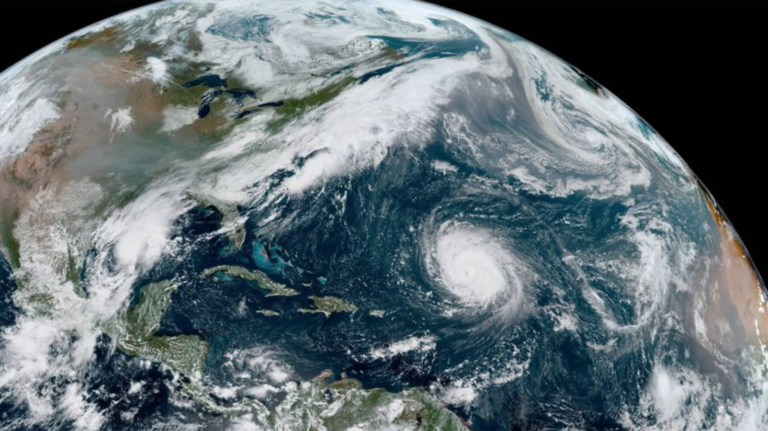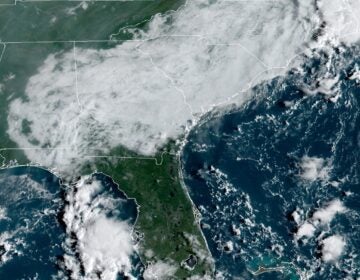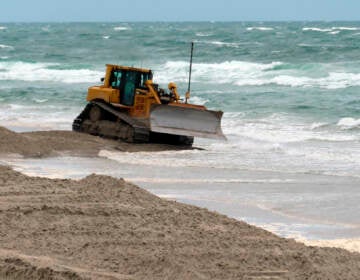Greek alphabet now in use as extremely active hurricane season depletes names
For the second time in the history, the National Hurricane Center is using the Greek alphabet to name new cyclones during this year's record-breaking hurricane season.

A Friday, Sept. 18 satellite image of tropical activity. (NOAA/GOES)
For the second time in the history, the National Hurricane Center is using the Greek alphabet to name new cyclones during this year’s record-breaking hurricane season.
Subtropical Storm Alpha, the 22nd named storm of the season, formed Friday afternoon near the coast of Portugal, according to the National Hurricane Center. The forecast calls for Alpha to track inland into Portugal.
Elsewhere, the National Hurricane Center is tracking Hurricane Teddy and Tropical Storm Wilfred, along with a tropical depression and two areas under investigation for possible development.
Other than large swells and an increase in the rip current risk from Hurricane Teddy, none of the systems pose a threat to New Jersey.
The Greek alphabet was first used in 2005, the year of Hurricane Katrina and the busiest season on record, when 27 named storms formed. The upcoming names include Beta, Gamma, Delta, Epsilon and Zeta.
In August, NOAA forecasters increased the predicted number of named storms and major hurricanes.
The updated outlook calls for 19 to 25 named storms (winds of 39 mph or greater), of which 7 to 11 could become hurricanes (winds of 74 mph or greater), including 3 to 6 major hurricanes (winds of 111 mph or greater).
The forecasters pinned the extremely active forecast on warmer-than-average sea surface temperatures in the tropical Atlantic Ocean and the Caribbean Sea, reduced vertical wind shear, weaker tropical Atlantic trade winds, and an enhanced West African monsoon.
With more than two months left in the current hurricane season, forecasters advise coastal residents to have a plan should a tropical system threaten or strike.
WHYY is your source for fact-based, in-depth journalism and information. As a nonprofit organization, we rely on financial support from readers like you. Please give today.






